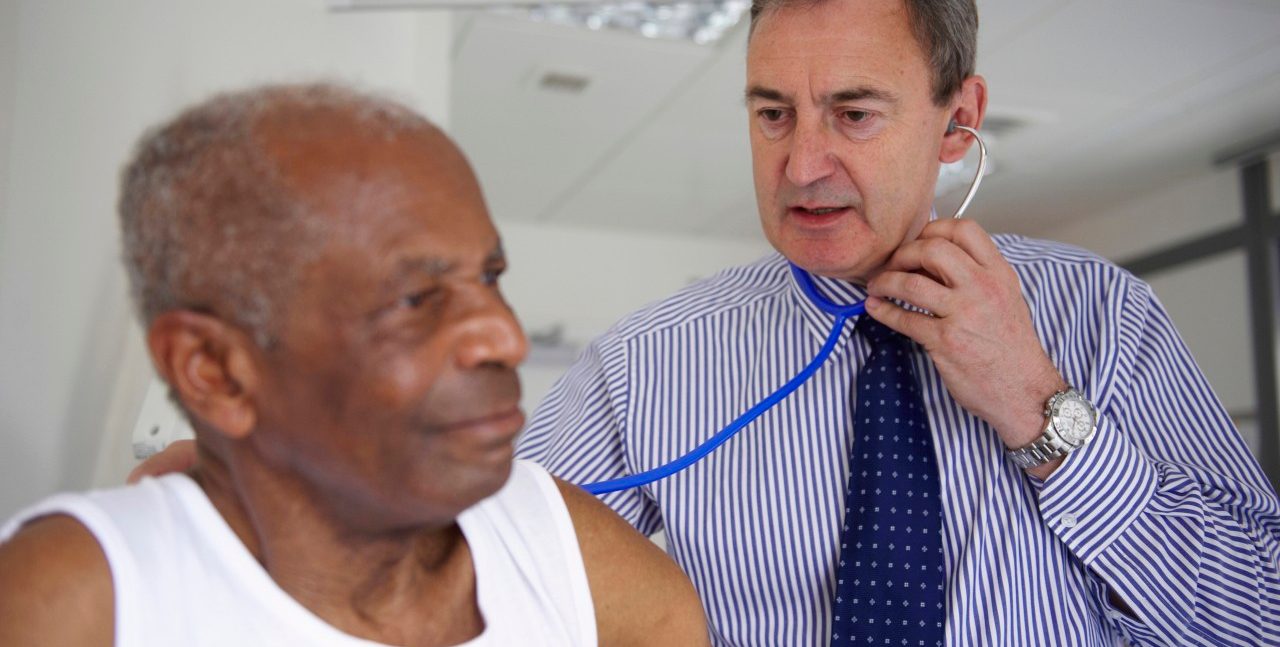Helping Seniors at the Doctor’s Office

Planning ahead and asking the right questions can save time and get the job done.
Some seniors need help in a lot of ways. One is at the doctor’s office.
You can help your parents or other loved ones by helping them prepare to see a doctor, asking questions, and being their health advocate.
Remember that as some seniors grow older, a role reversal may occur, leaving you as the parent to someone who is essentially a child. They are more easily confused and can be overwhelmed by health information, even when healthcare providers try their best to communicate it simply.
YOU MIGHT ALSO LIKE: Doctors Should Reduce Some Medicines in Seniors
You can help interpret that information and be a reassuring presence in a potentially overwhelming atmosphere.
The first thing you can do is help a senior cut to the chase. Often they’ll get into conversational small talk and forget to bring up the primary reason they’re at the doctor.
“I've had patients talk to me about smaller issues and by the time I'm ready to close the visit they say, ‘What I really wanted to talk about is. . .,’” writes Loyola University Health System pediatrician Hannah Chow. “This makes it difficult to discuss what’s really concerning you…. It might even be good to make a list of the questions you want to ask to make sure we cover your concerns in the visit, but keep it short.”
Chow once had a parent pull out a list of 27 questions during what is typically a 15-minute visit, including an examination. So, you should help a senior stick to the three most important concerns they have, which gives the doctor and nurse time to answer questions and explain health information.
A physician's nurse is invaluable, so be sure to make good use of their knowledge and ability to communicate. Nurses know what is wanted from a medical standpoint, and are usually very familiar with each patient’s chart. If you want to speak to a physician directly, talk with the nurse first, Chow says.
YOU MIGHT ALSO LIKE: Should You See a Geriatrician?
Another way to help your aging parents is to establish a pattern of communication with the doctor and nurse. Despite their advanced age, seniors will still consider you their child and may not listen to what you have to say.
But they usually have enough respect to listen to a doctor or nurse, so, like Lori LaBey, fax or email a list of questions you want discussed before the visit occurs. “The doctor asked the questions, then I could chime in,” LaBey.
Other tips that make senior doctor visits easier include giving the doctor copies of your parent's signed healthcare proxy or durable medical power of attorney so he knows who in your family is responsible for making healthcare decisions if the senior can’t.
It’s also important to pick only one family liaison and stick with that person for communication with the doctor’s office. “Physicians do have time to field phone calls from several family members,” says Amy Erlich, MD, a geriatric medicine specialist at Beth Israel Hopistal in New York City.
"I had one family; the son emailed me from Arizona. The daughter-in-law called me from Connecticut. The son called me from Washington. No one wants all these phone calls and emails," she says.
You should always try to attend doctor appointments, but if you can’t you should consider hiring a geriatric care manager, concierge service, home health aide, paid caregivers, or ambulatory escorts who can do it for you.
"We suggest family members set up an initial interview so they can find someone who they are comfortable with," says Renata Gelman, nurse clinical manager for Partners in Care, an affiliate of Visiting Nurse Service of NY.
Other tips include not assuming that your senior’s doctors are sharing information and making sure they do, using one medical group, and communicating with home health aides.
Updated:
April 07, 2020
Reviewed By:
Janet O’Dell, RN